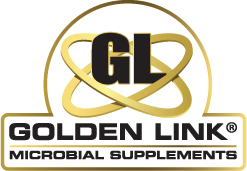Digestion in the Equine GI Tract
It is useful to remind ourselves that a horse naturally would obtain feed while grazing. The equine, in nature, will graze upwards of 16 plus hours a day.
The horse’s digestive system is well suited to this feeding behavior – the stomach and small intestine are designed to cope with the almost continual entry of small amounts of forage, while the large intestine and ceacum is geared toward the extraction of nutrients by pseudo fermentation of fibrous feed stuff.
Because of this continuous grazing, in a natural state, there is an abundance of saliva produced during this continuous foraging. This saliva is rich in bicarbonate, which helps to buffer the acid secretions produced in the stomach. Also, horses eating fiber instead of grain, will produce an exponential amount of saliva, more bicarbonate, which helps prevent excess stomach acidity which can help lead to ulcers.

Unfortunately, continual access to grazing is but a dream for the performance horse.
Instead, the high-energy requirements of performance have necessitated inclusion of energy-dense feed, like cereal grains. These high energy diets produce large amounts of stomach acid. To combat this unnatural feeding requirement of performance horses, one needs to compliment a feeding schedule with ingredients that will enhance digestion, when feeding heavy concentrated meals and help prevent stomach acidity.
Immune boost probiotics used in a feeding regiment, containing bacterial species, will help the extraction of nutrients.
These bacteria will bind to the mucosa lining in the hind gut and produce substrates that prevent harmful bacteria from colonization. Above all, they produce enzymes that break down fiber, carbohydrates, protein, and fats. They will help reduce the buildup of lactate which can help lead to GI acidity.
These bacteria also secrete hydrogen peroxide which acts as a pathogenic bacteria destroyer. While bacilli species are most helpful stimulating the G.A.L.T., they are also very useful breaking down fibers in the hind gut, with their enzyme production. Because the enzymes produced by probiotics are their main usefulness in helping digestion. Immune Boost contains large amounts of added enzymes to aid and supplement bacteria in digestion.
Enzymes
These added enzymes are products of fermentation extracts of bacteria or fungal origin. Enzymes are protein that catalyze (speed up) or facilitate chemical reactions during the biological process of digestion. Because enzymes are highly specific for either fats, proteins or carbohydrates, as already mentioned; one needs to add the enzymes protease, amylase, and glucanase to cover all the bases.
The equine digestive tract was not designed to process large quantities of grain. Thus, we add an abundant amount of the enzyme amylase (110,000 units) to help the breakdown of starch in the feeding.
Enzymes like bacteria are very sensitive and easily inactivated by high temperature.
Yeast & Yeast Culture

These products are added to enhance the growth of the probiotics in the gut. Yeast and yeast culture helps create an environment in the GI tract to promote propagation of the added probiotics. Yeast has also shown to increase the absorption of vitamins and minerals by the promotion of enzyme producing bacteria.
Lactating mares fed yeast and yeast culture have higher concentrations of sugars, fats, proteins and amino acids in the milk. Because of the increased nutrients in the milk, their foals were shown to have higher than average daily gains.
One research study showed, horses in training, benefited greatly when fed a diet rich in yeast and yeast culture. Their blood levels of lactic acid was reduced before and during exercise. They were able to clear laetate levels in their blood much more quickly.
“We want to leave you with this Thought”
Whatever the nutritional potential of a feed, its contribution is non-existent if it does not pass the test of absorption.
These nutrients that are not absorbed and do not enter the circulation to be taken to the cells, do absolutely no good! Every step taken to feed the horse in training; the best of hay, grains, supplemental minerals and vitamins are of no value without absorption. So feeding a supplement like Golden Link™ allows maximum absorption of all nutrients and brings out the horse’s genetic potential.
